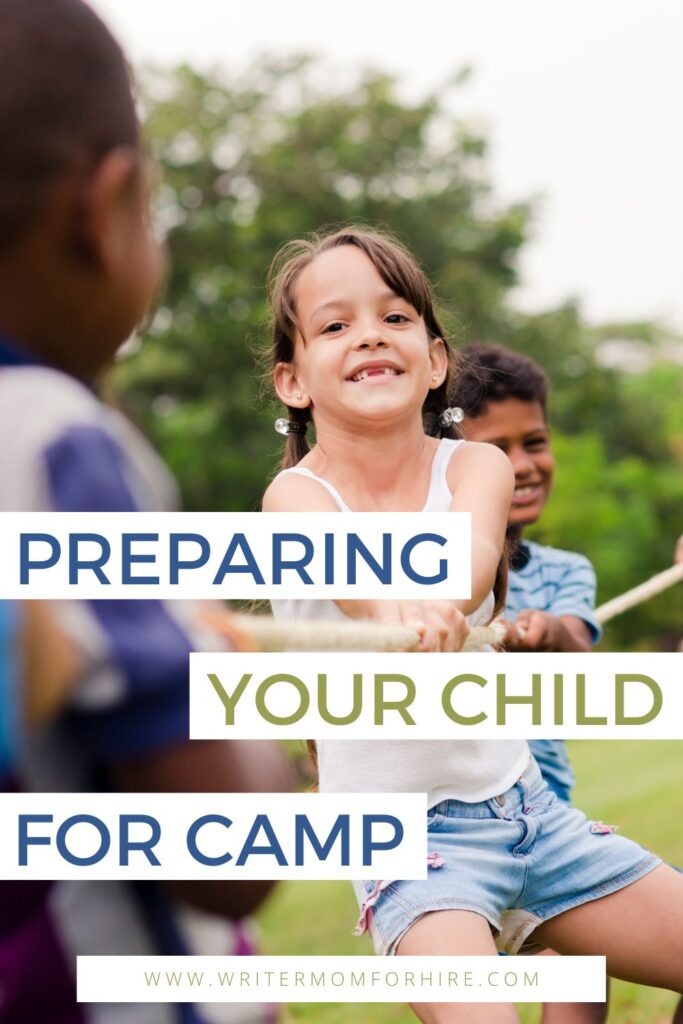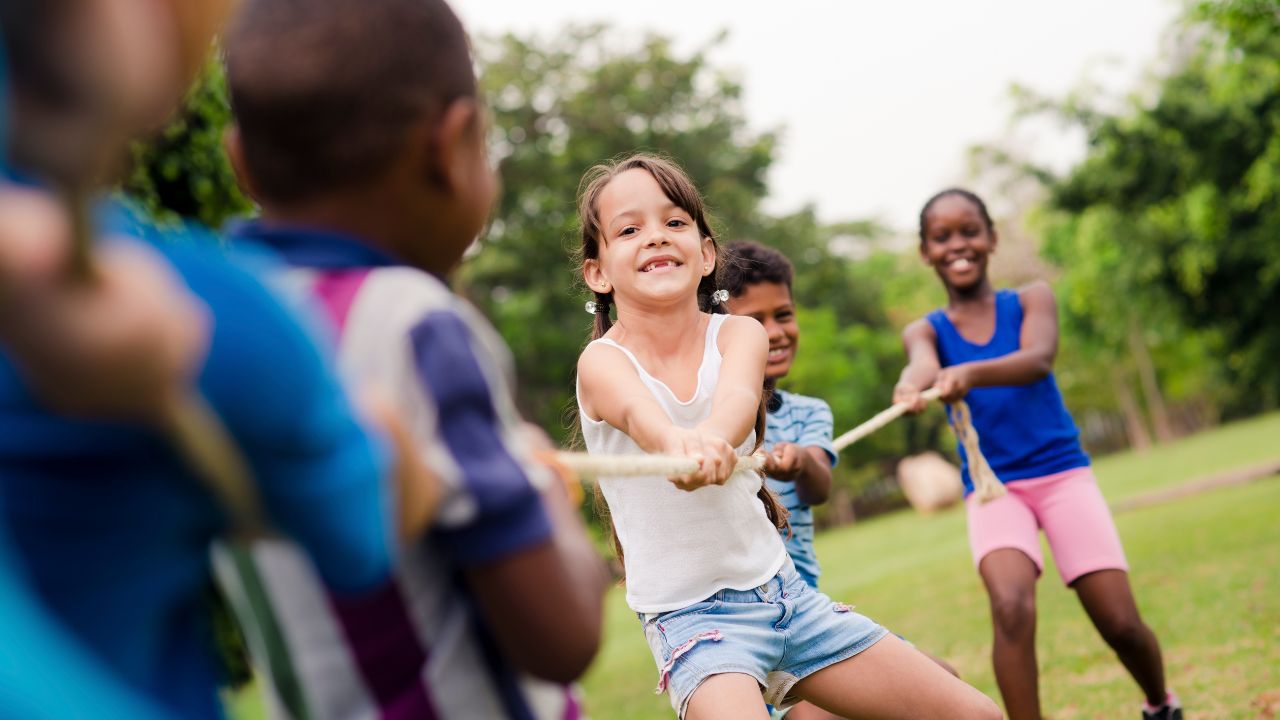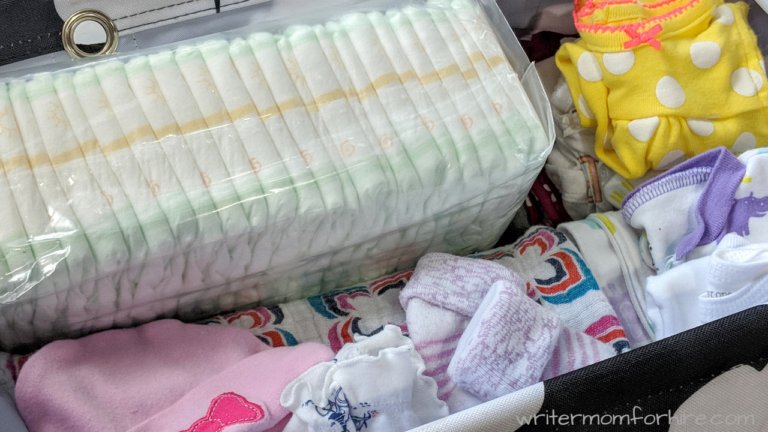19 Tips to Prepare Your Kids for Summer Camp Success
This post may contain affiliate links and we may earn commissions when you make a purchase through these links (at no extra cost to you). See our disclosure policy for more details.
Are you sending your child to summer camp for the first time ever? Preparing for camp well before it begins is the key to ensuring the best possible outcome.
This is especially true if your kiddo hasn’t spent many nights away from home yet.
So, how can you prepare your child for summer camp and ensure that it’s a success? Unfortunately, I can’t guarantee that there won’t be a few bumps along the way – however, I’ve compiled a list of tips you can implement for the biggest advantage.
But first, is your child actually ready for summer camp?

This post was sponsored by Name Bubbles.
Is Your Child Ready for Summer Camp?
Younger children who haven’t spent many nights away from home might not be ready for sleepaway camp yet. My kids are currently ages six and under, so Day Camp might be a more viable option in our case.
But if your kiddo is around seven years and older, expresses enthusiasm for sleepaway camp, and is able to cope with being away from home overnight, then they might be ready for summer camp.
Even so, the more you can prepare ahead of time, the better off your child will be when it comes to having a great time at camp.
What is the best age to go to summer camp?
Kids aged five to six often do best at a day camp; the best age to go to sleepaway camp is seven and up, although that depends on their maturity level and a number of different factors.
You and any other caregivers will have to decide if they are emotionally ready for summer camp.
Tips to Prepare for Summer Camp
When preparing for camp, implement the following ideas to get your child ready for their upcoming adventure.
1. Choose the right camp
Wondering how to choose a summer camp for your child? If you’re not sure what to look for in a camp, ask yourself:
- Do I want them to be near or go farther away?
- How many nights do I want them to spend away from home?
- Do I want a religious camp or some type of specialty camp?
- Ideally, how will my child be spending their time at camp?
- Are they able to accommodate any special needs?
There are so many different types to choose from – sports, STEM, church camps, and so on – it’s well worth knowing what to look for before you start investigating summer camps for your kids.
2. Mark your calendar
Once you’ve selected a camp and signed your child up, mark your family’s calendar with the start and end dates.
Not only will this help to avoid overbooking your schedule, but it’s a good way for your child to visualize and count down the weeks and days till camp begins.
3. Keep a positive attitude
Try to avoid expressing any concerns or worries in front of your child – kids can really pick up on feelings of tension. Keep conversations around camp calm and positive, and avoid mentioning the possibility of homesickness around them.
On the other hand, if they voice concerns about getting homesick, then be sure to listen and offer encouragement.
4. Foster self-care habits
Because you won’t be around to help with self-care, like brushing teeth and hair brushing, showering, etc., it’s essential that they are able to do these things on their own.
Encourage independence and a sense of responsibility by letting them take over these tasks prior to camp, if they haven’t already done so.
5. Make a packing list
Hopefully the camp will provide a packing list, but you can start your own well ahead of time so that it’s customized for your child.
When the time comes, be sure to use the list – and then tuck it inside your child’s luggage so they can double check that everything returns home, as well.
6. Make a shopping list
Once you’ve written up a packing list, make a shopping list of items you need to purchase for camp, then bring it along on your next shopping trip.
7. Pack strategically
Packing strategically (rather than just tossing everything into a duffel bag) will help keep everything organized and stress-free for your child, and will help ensure that nothing goes missing.
8. Avoid overpacking
Of course, you want to make sure your child has everything they need for their time away. On the other hand, if you pack too much, it could get too heavy for your child to carry around on their own. Just stick with the essentials!
9. Involve your child in packing
What happens when your kid gets to camp and you’re not there to help them find their toothbrush? Eliminate the stress by having them HELP you pack, so they know exactly where everything is, instead of packing FOR them.
10. Label everything
Label all of your kiddo’s things with custom name labels, such as those from Name Bubbles.
If you’re not quite sure what Name Bubbles are, let me enlighten you! They’re some of the easiest to use and strongest-sticking customizable name labels — oh, and they’re waterproof.
You can use Name Bubbles labels on:
- Clothing
- Shoes and sandals
- Bathing suits
- Towels
- Water bottle
- Coats and sweatshirts
- Toiletries
- Outdoor gear
- Sunscreen, bug spray, etc.
- Sports equipment
- Medical supplies
- Suitcase or duffel bag
- And more
In fact, they will stick to nearly anything, and while they are removable, they won’t simply fall off.
And if you order the camp value pack, you’ll get a variety of label sizes:
Waterproof Name Labels
- 20 | Small Rectangle Labels 1.8″ x 0.5″
- 5 | Rectangle Labels 2.8″ x 0.7″
- 4 | Square Contact Labels 1.5″ x 1.5″
Waterproof Shoe Labels
- 4 | Shoe Labels 0.8″ x 1.6″
Press-and-Stick Clothing Labels
- 40 | Circle Clothing Labels 0.7″
Check out the camp value packs here.
11. Make a list of questions
As you or your child comes up with a question about summer camp, write it down to ask later, and then be sure to call or email the camp director with your list of questions.
Otherwise, you can take it along if you’ll be touring the facilities prior to the start of camp.
12. Share your best camp memories
Did you attend summer camp as a kid? (So did I!) Share lots of your best camp stories to help pump up your kiddo for their own experience.
Personally, when my kids are at the camp age, I’ll refrain from sharing any worries or mishaps that might have happened – at least, until later on!
13. Invite a friend along
Sometimes, having a familiar face nearby can help calm the nerves. If your child is nervous about making new friends, perhaps inviting someone they already know will help them ease into their first summer camp experience.
14. Visit the camp
If you’re able to visit the camp ahead of time, schedule a tour so your child can familiarize themself with the grounds. Some camps even offer an orientation for new campers.
Knowing what to expect can really give kids a confidence boost, and you’ll feel more confident sending them off, too.
15. Schedule a sleepover
If you’re worried about how your child will cope with sleeping away at camp, think about whether they can stay overnight with someone you trust beforehand.
Schedule a sleepover with a friend, a grandparent, or someone they are comfortable around. This way, you can troubleshoot any issues that arise and everyone will be much more prepared for sleepaway camp.
16. Fill out forms in advance
While it seems like a no-brainer, filling out forms ahead of time (rather than waiting until you’re on the way out the door!) will save everyone’s sanity.
If you’re stressed and rushing to fill it out at the last minute, it’ll only stress out your child, which isn’t a great way to start their summer camp experience.
17. Arrive on time
Punctuality can be crucial when it comes to arriving at the bus pick-up site, and it’s also important when you’re dropping kids off directly at the camp.
18. Keep good-byes brief
Avoid lingering, since this can often make good-byes even more difficult for an already-anxious child.
And if everyone lingers while dropping off their kids, walkways can get clogged and things can get confusing, so it’s best to keep it short and sweet.
19. Manage your expectations
Set realistic expectations and, while you should have a backup plan in case your child needs to be picked up, it’s best to act as if they will be there the entire time.
Discussing that backup plan could set your child up for failure from the beginning – and our goal is to set them up for summer camp success.
Final Thoughts
In today’s post, we discussed the best ages for attending summer camp, along with a list of ways you can get started preparing for camp.
As a parent or caregiver, this process can feel a bit nerve-wracking, so hopefully by now you’re feeling a bit more prepared to send your child away for their first summer camp experience!
Make sure to use the discount code WRITERMOM10 when ordering your Name Bubbles labels.
Read More:
13 At-Home Summer Camp Ideas for Kids Who Are Missing Out
21 Awesome Summer Camp Ideas at Home
Name Bubbles Review: Personalized Name Labels for School, Daycare & More








